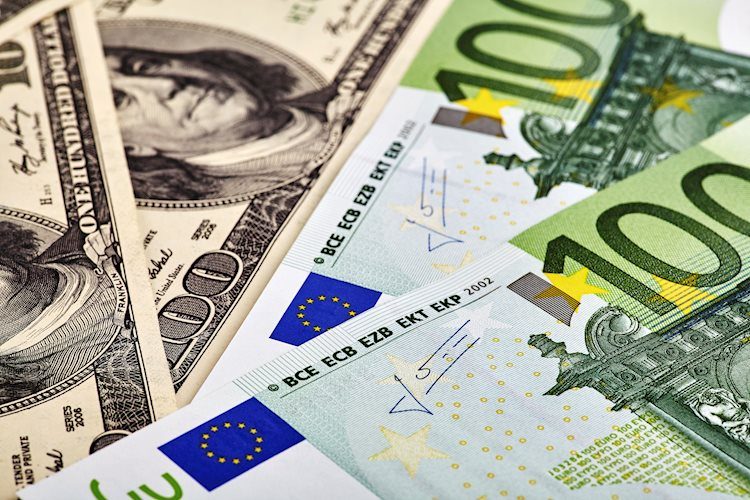- EUR/USD edged back into the low end on Monday as the US Dollar bounces.
- A strong Greenback bid is bolstering the USD across the board.
- Easing equity prices and a simmering Middle East are boosting safe haven bids.
EUR/USD pivoted into early losses to kick off the new trading week, cutting a near-term recovery rally short and sending intraday bids tumbling back toward 1.0800. The US market session sees stock investors taking a breather from setting record highs multiple days in a row, and the downside push in equities is helping to send the US Dollar higher.
Middle East geopolitical tensions continue to simmer away in the background, giving the safe haven Greenback a boost and lending a leg higher to both Gold and Crude Oil prices. Market participants continue to wait and see if the US will successfully negotiate Israel into a ceasefire as the small country continues to wage war against Hezbollah and Hamas, showing a willingness to cross into other countries’ borders to do it.
Federal Reserve (Fed) Bank of Dallas President Lorie Logan hit most of the common narrative elements markets have received from Fed policy planners in recent weeks, however the Dallas Fed President made a point of noting that money markets are “cose to or just above interest on reserve rates”. Dallas Fed President Logan then proceeded to highlight the risks to the US labor market and the Fed’s dedication to maintaining a healthy employment rate, underlining the fact that the Fed will need not just a decline in inflation, but a significant uptick in the unemployment rate before markets would see accelerated rate cuts.
US Dollar FAQs
The US Dollar (USD) is the official currency of the United States of America, and the ‘de facto’ currency of a significant number of other countries where it is found in circulation alongside local notes. It is the most heavily traded currency in the world, accounting for over 88% of all global foreign exchange turnover, or an average of $6.6 trillion in transactions per day, according to data from 2022. Following the second world war, the USD took over from the British Pound as the world’s reserve currency. For most of its history, the US Dollar was backed by Gold, until the Bretton Woods Agreement in 1971 when the Gold Standard went away.
The most important single factor impacting on the value of the US Dollar is monetary policy, which is shaped by the Federal Reserve (Fed). The Fed has two mandates: to achieve price stability (control inflation) and foster full employment. Its primary tool to achieve these two goals is by adjusting interest rates. When prices are rising too quickly and inflation is above the Fed’s 2% target, the Fed will raise rates, which helps the USD value. When inflation falls below 2% or the Unemployment Rate is too high, the Fed may lower interest rates, which weighs on the Greenback.
In extreme situations, the Federal Reserve can also print more Dollars and enact quantitative easing (QE). QE is the process by which the Fed substantially increases the flow of credit in a stuck financial system. It is a non-standard policy measure used when credit has dried up because banks will not lend to each other (out of the fear of counterparty default). It is a last resort when simply lowering interest rates is unlikely to achieve the necessary result. It was the Fed’s weapon of choice to combat the credit crunch that occurred during the Great Financial Crisis in 2008. It involves the Fed printing more Dollars and using them to buy US government bonds predominantly from financial institutions. QE usually leads to a weaker US Dollar.
Quantitative tightening (QT) is the reverse process whereby the Federal Reserve stops buying bonds from financial institutions and does not reinvest the principal from the bonds it holds maturing in new purchases. It is usually positive for the US Dollar.
Read the full article here

